We kindly inform you that, as long as the subject affiliation of our 300.000+ articles is in progress, you might get unsufficient or no results on your third level or second level search. In this case, please broaden your search criteria.
Extremely complex and demanding process of every country access to European Union implies political will for conducting basic adjustments to what is called legal acquisition of EU or to Community/European Union “such as it is” (Acquis communautaire). That requires a clear vision, coordination and a programme of integration and legislature harmonization, with clear divisions of jobs and tasks of responsible institutions at all government levels in any accessing country or potential candidate. Bosnia and Herzegovina is unfortunately an example of inability to make a “common vision” about its own European future, and therefore inability to create functioning “coordination system” and Integration Programme, because of which Bosnia and Herzegovina was at the “blind track” in 2012 and 2013 as far Euro-(Atlantic) integrations are concerned. There is lack of will, knowledge and readiness for deep ambient reforms which would make B&H compatible to EU as far as constitutional-legal issues are concerned. And without changing the existing constitutional-legal framework it is not even possible to come closer to EU and not to mention to access to it. During the process of accessing to EU the final consequence is nothing else but taking over acquis and graded transfer of certain sovereign legislative and executive authorities to EU in accordance to principles about divided and transferred sovereignty, divided authorities and multi-level governing according to acquis. Equal rules are the same for everybody during taking over of “legal acquisition”, acquis has to be simply taken over during the process of accessing to EU. Conditions and deadlines of taking over are only negotiated, while Bosnia and Herzegovina as the state, which is the only partner to EU in international-legal terms, is responsible for consistent implementation of acquis. That takes into consideration both consciousness and responsibility for the own future at all levels, as well as capability of the public administration for the process of adjustment, negotiation, and access to EU. Unfortunately, institutions of BH authorities are not and do not want to be conscious of these challenges.
More...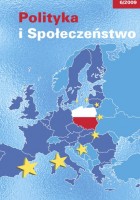
The Slovak Republic was born on 1 January 1993 resulting from a disintegration of the Czecho-Slovak Federation. Just like in the case of the other Eastern European countries, its foreign policy priority was defined in terms of the Republic’s integration with Euro-Atlantic structures. Compared to the other states in the region, the road of Slovakia to the European Union seems most exceptional. This exceptionality was caused by the political line pursued by Vladimír Mečiar’s cabinet in the period of 1994– 1998, which led to international isolation of Slovakia, made the country's bilateral relations with the neighbouring countries deteriorate, and let basic human rights be violated. Discrimination of the Roma and Hungarian minorities, using secret police forces to fight opposition as well as an increase in nationalist feelings resulted in Slovakia’s drop-out of the first group of CEE countries to apply for the EU membership. Slovakia’s relations with Hungry were particularly tense because of the Hungarian minority problem and the issue of Beneš’s decrees constituting a basis on which the property of many Hungarians had been confiscated after the war. The situation changed in 1998 when the so called „broad coalition” assumed power in Slovakia, led by Mikulaš Dzurinda. Dzurinda's cabinet's energetic efforts resulted in the Slovak Republic being invited back to the membership negotiations during the EU summit in Helsinki in 1999. In a short time the Slovaks became the leader of the negotiation process. Slovakia became a country attractive for many foreign investors, which contributed to its rapid economic growth. The systemic and economic transformation entailed, however, considerable costs exemplified by the rise of unemployment and much increased budget expenses to cover the social assistance needs. The EU accession referendum proved to be the Slovak population's manifestation in support of European integration. The fact that the referendum attendance only slightly exceeded the required minimum of 50% was, nonetheless, a case of concern. Representatives of practically all of the Slovak political parties spoke enthusiatically in favour of accession to the European Union. Some doubts were only voiced regarding dominant social views. Slovakia is a country of fairly small demographic potential. It is inhabited by barely 5,4 mln people. This is translated into an expected level of influence of Slovakia within the EU, which is insignificant. The Slovaks are represented by 1 commissioner, 14 deputies at the European Parliament, 7 ballots in the Council of the European Union, and some representatives in other Union’s institutions. In the circumstances, the Slovaks will be forced to seek allies to pursue their goals.
More...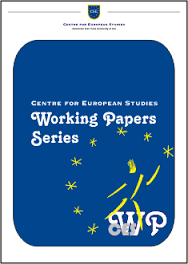
Once it was introduced as an instrument for deepening European integration, the legitimacy, opportunity and utility of European Semester were repeatedly questioned from the perspective of ist contribution to the institutionalization of European governance. Also, there is a strong and direct link between the further deepening of the European Union’s political and economic integration on the one hand, and the development of a culture of evaluating policies and programs on the other. Taking these aspects into account, the following questions arise: does the European Commission have, in its position as manager of the European Semester, a real capacity of evaluating all aspects regarding the deepening of European integration? Can the European Semester be a means for diffusing evaluation practice at the level of Member States? This is why, in this paper, we propose to give answers to these questions.
More...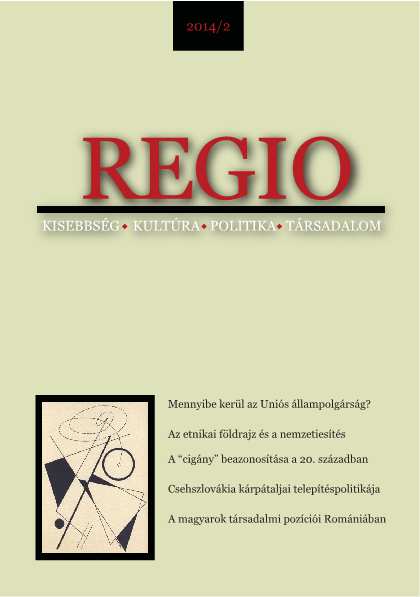
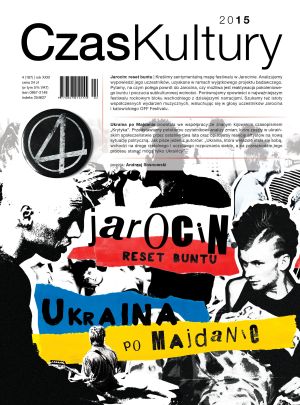
An essay about the hopes and disappointments associated with the European aspirations of Ukraine. The author wonders to what extent Ukraine’s European choice is illusory and unattainable, and shows that the “velvet curtain” dividing Europe from Ukraine is increasingly impenetrable.
More...
The research explores the impact of Euroization on Kosovos businesss access to finance. It attempts at answering the questions as to what extent has the Euroization impactet the business development by enabling the adequate access to finance. The research finds that the Euro adaption has brought about different benefits.
More...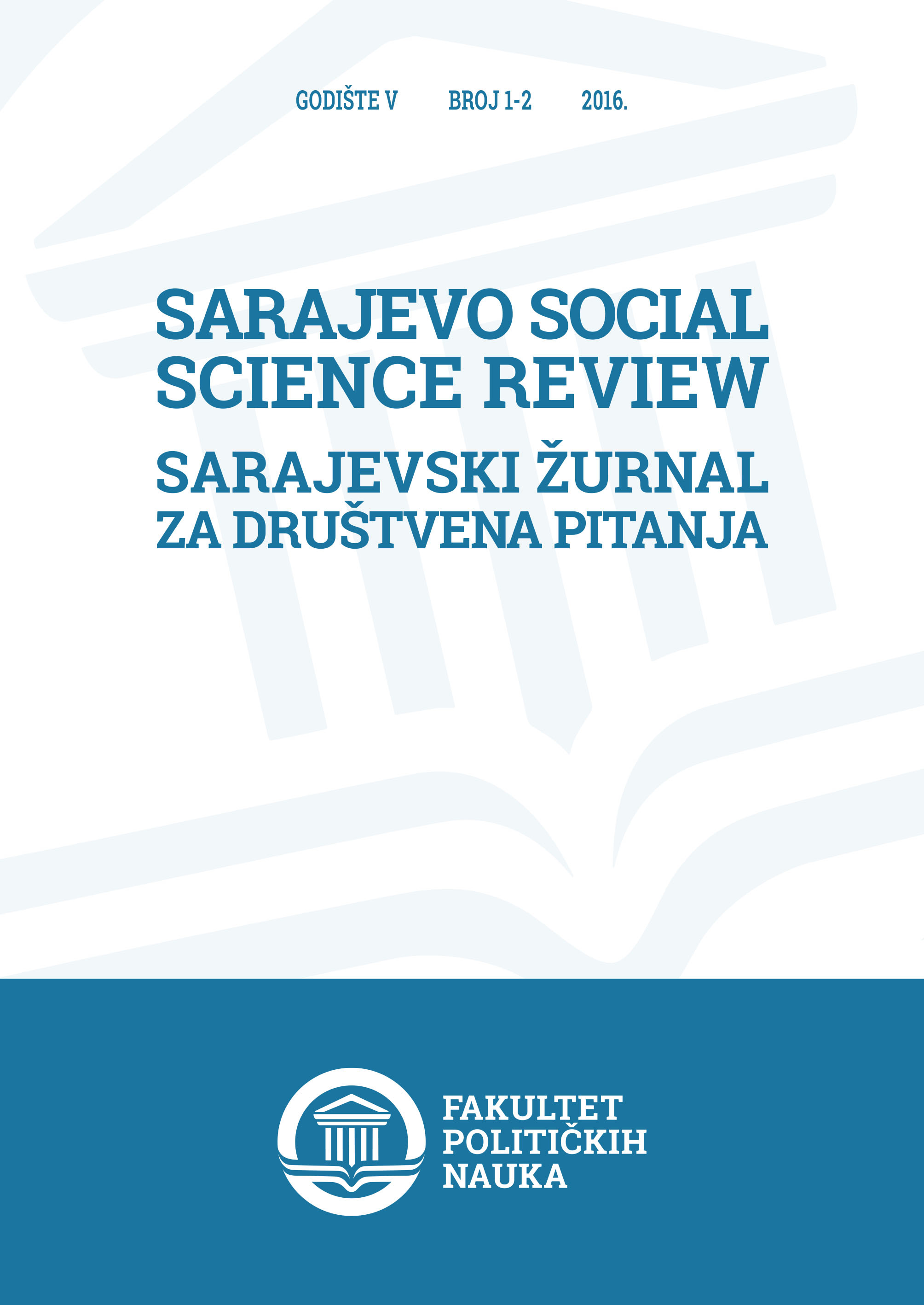
Enlargement lies at the very heart of the European Union integration process as a part of its fundamental principles. The article explores the institutional framework and barriers of EU membership and interrogates patterns and effects of democratization through Europeanization in its national, but also supranational and transnational dimension. The specific case study regards a set of countries called ‘Western Balkans’ in which the post-communist democratic transition and transformation assumed particularly conflictual and violent forms during the 1990s, with serious repercussions for the patterns of consolidation of the liberal democracy and its specific political culture throughout their societies. The analysis finally questions the ability of the EU institutions and actors to carry out such an accession process capable to induce deep political and social transformation of all societies involved and, at the same time, deal with its current financial and economic, political and ‘migrant’ crisis.
More...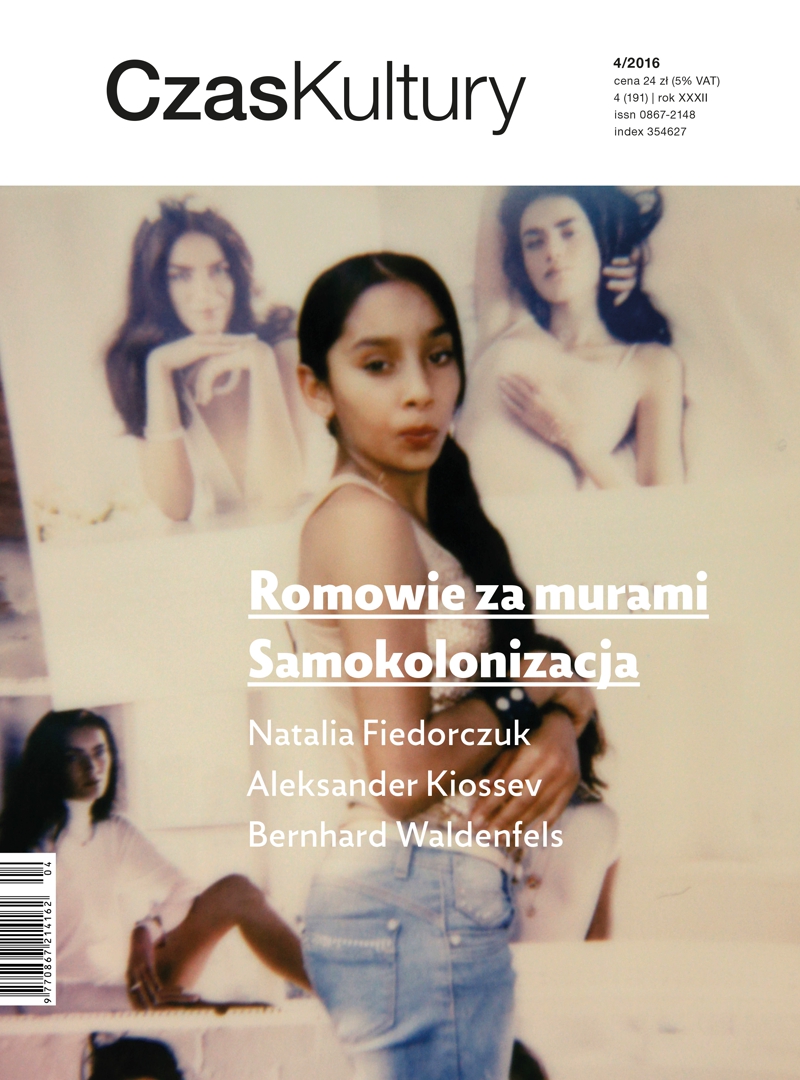
The Euroscepticism displayed today by the Polish right can be seen as a narrative of self-colonization. In this narrative, European integration is nothing more than another attempt to colonize Poland, fraught with negative social and economic impacts, and carried out by a pro-European elite suffering from post-colonial syndrome. Pro-European political elites are presented as turncoats betraying ‘Polishness’ and realizing the interests of Western countries. The average supporters of European integration are seen as “ignorant masses” who need to be made aware of and freed from their oppression. The Polish right wing has appropriated elements of postcolonial theory, contributing to the formation of an undeservedly negative image of the European Union among part of Polish society.
More...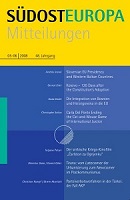
The article explores the development and origin of the EU Strategy for the Danube Region. This is a ‘macro-regional’ strategy of the EU comprising six years of implementation.The text sheds light on different characteristics of the region, in cultural, socio-economic or political terms, and compares the EU Strategy for the Danube Region with other macro-regional strategies, such as the EU Strategy for the Baltic Sea Region or the recently established EU Strategy for the Adriatic and Ionian Region. These strategies are placed and described within the context of EU integration and several policies such as regional or enlargement policy.Finally, the author draws some conclusions and provides concrete recommendations for the practical implementation and the future development of macro-regional strategies.
More...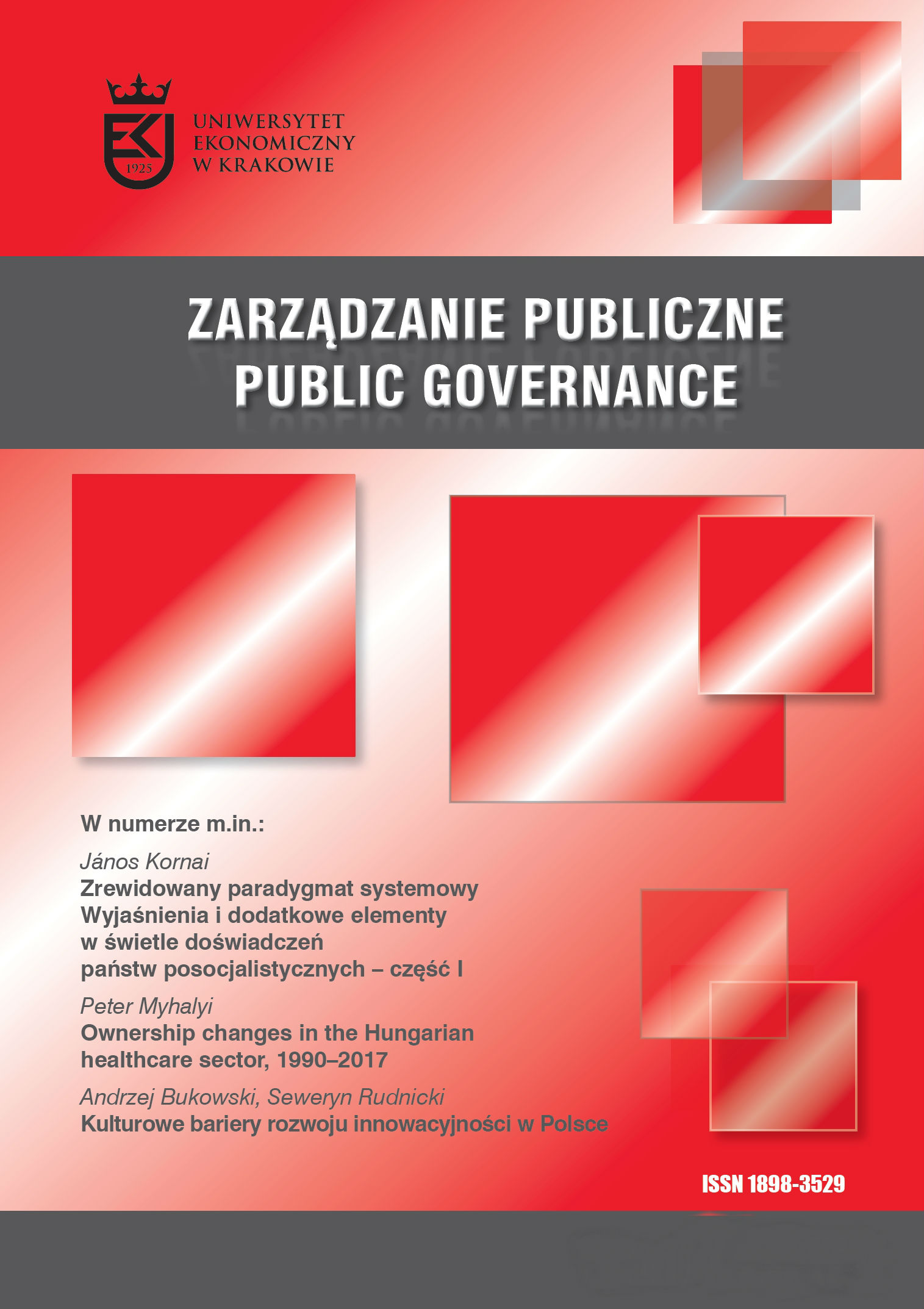
The aim of this article is to compare the Lisbon and “Europe 2020” EU economic and social strategies. The analysis is focused on “path dependency” of historical trends as well as on new tendencies in management methods and policy priorities. The changes in the new EU Strategy are due to external circumstances and are rather evolutionary. They have a limited impact on the quality of the Strategy’s implementation.
More...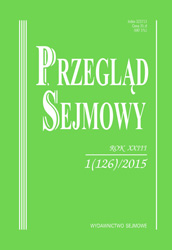
As a result of the accession to the EU new tasks are assigned to a parliament of a Member State. Inthe literature of the subject, these tasks began to be qualifi ed as a new function of parliament, calledthe European function. Such a distinction is justifi ed by not only the evolution of EU regulations thatincreasingly specify the competencies of national parliaments in EU matters, but also changes in traditionalpowers of parliaments generated by membership in the Communities and, then, the EU, aswell as the emergence of new elements of the European function. The author examines the issue ofassessment of the new tasks of the national parliaments in connection with the ongoing integrationprocesses, which — due to the economic crisis — has received a new dimension (the involvementof parliaments in the EU economic affairs). She also attempts to defi ne a new European function ofnational parliaments and to present its content and the extent of its operation (oversight of the EUlegislative process, including the yellow, orange and red card procedures).
More...
In Poland, the system of election to the European Parliament is based on a multistage procedure for thedivision of seats, which has departed from Polish traditional and well-established model of territorialrepresentation. As a result, seats are not permanently assigned to constituencies and are allocated “dynamically”depending on the distribution of the votes among the constituency list of candidates. Beforethe election, nobody knows how many seats will be fi nally obtained by the region. As a consequenceof this system the distribution of seats is unjust and incompatible with the principle of substantive equalityand which, at the starting point, discriminates against constituencies with less than 2.2 million voters.It does not provide for the proper performance of the function of territorial representation, nor doesit reward (in a consistent manner) those constituencies in which the turnout is higher than the nationalone, instead leading to paradoxical divisions. This system, inconsistently and without reliance on anyreasonable criteria, favours or discriminate against constituencies with of the same number or percentageof those taking part in voting. There is, no rational and justifi ed reasons to keep it
More...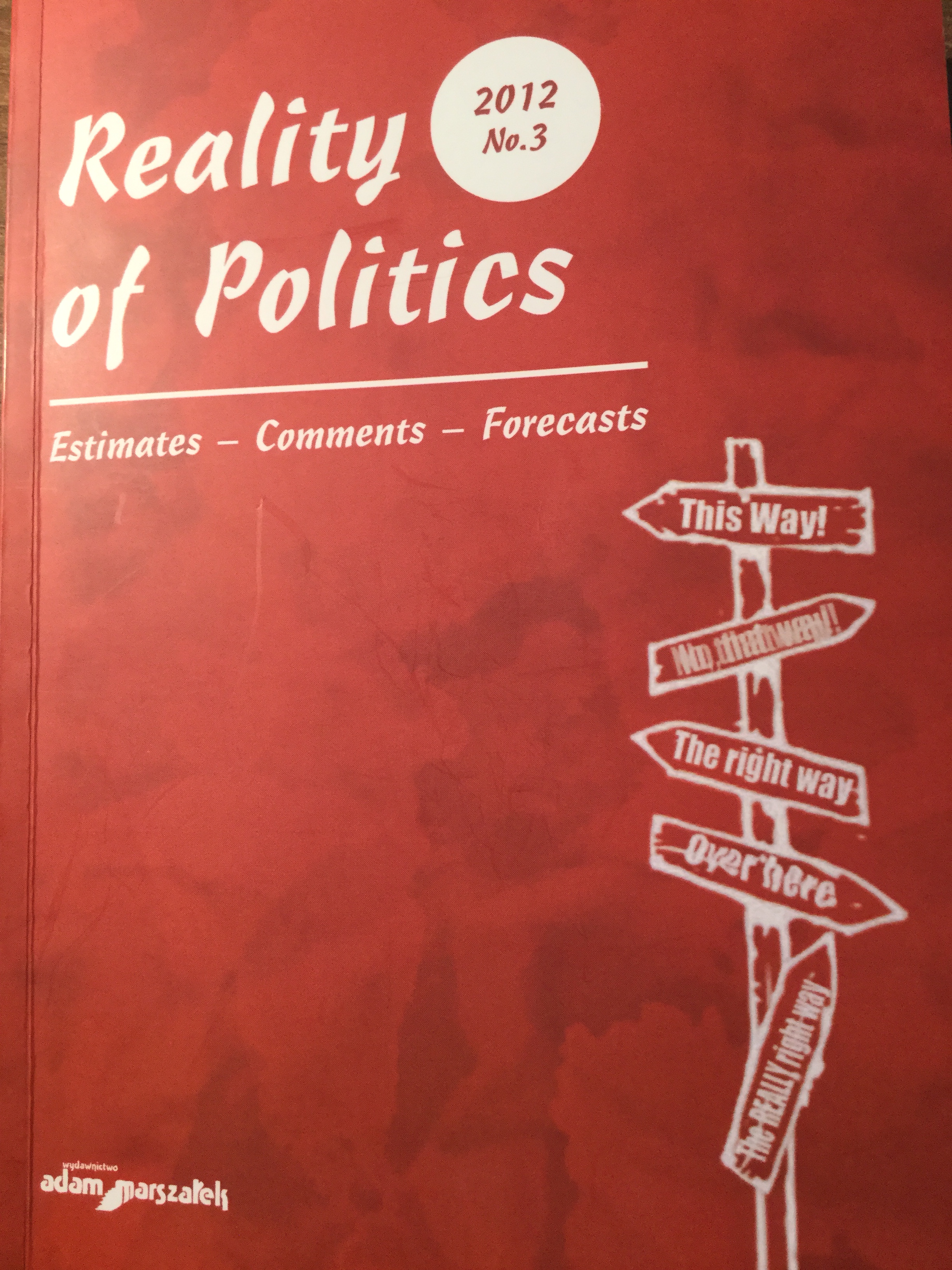
The aim of this article is to describe one exemplification of the phenomena of subnational leadership in the conditions of widely developed European integration, that created multi level political stratus. Alex Salmond for many years stands as charismatic leader of regional political party and succeeded in electoral competition. His method of political activities are stemming controversies, though, the summary of his overall political activities must point out his influence on the structure of modern United Kingdom – there is great possibility that we are 1-2 years ago from independence referendum.
More...
President performs his tasks mainly through the specific and politically strong body of the Security Council of the Russian Federation The Author devoted her treatise to the issues of polish presidency in the European Union. The Author pointed out the variety of factors that need to be taken into account when estimating effectiveness of this institution. Indicating the problems troubling the EU Author pointed out how Polish Presidency became coordinator of many meeting what was tremendous logistical tasks. The final element of the treatise was the analysis of opinions formulated inside Poland – their character was predictably determined by political bias.
More...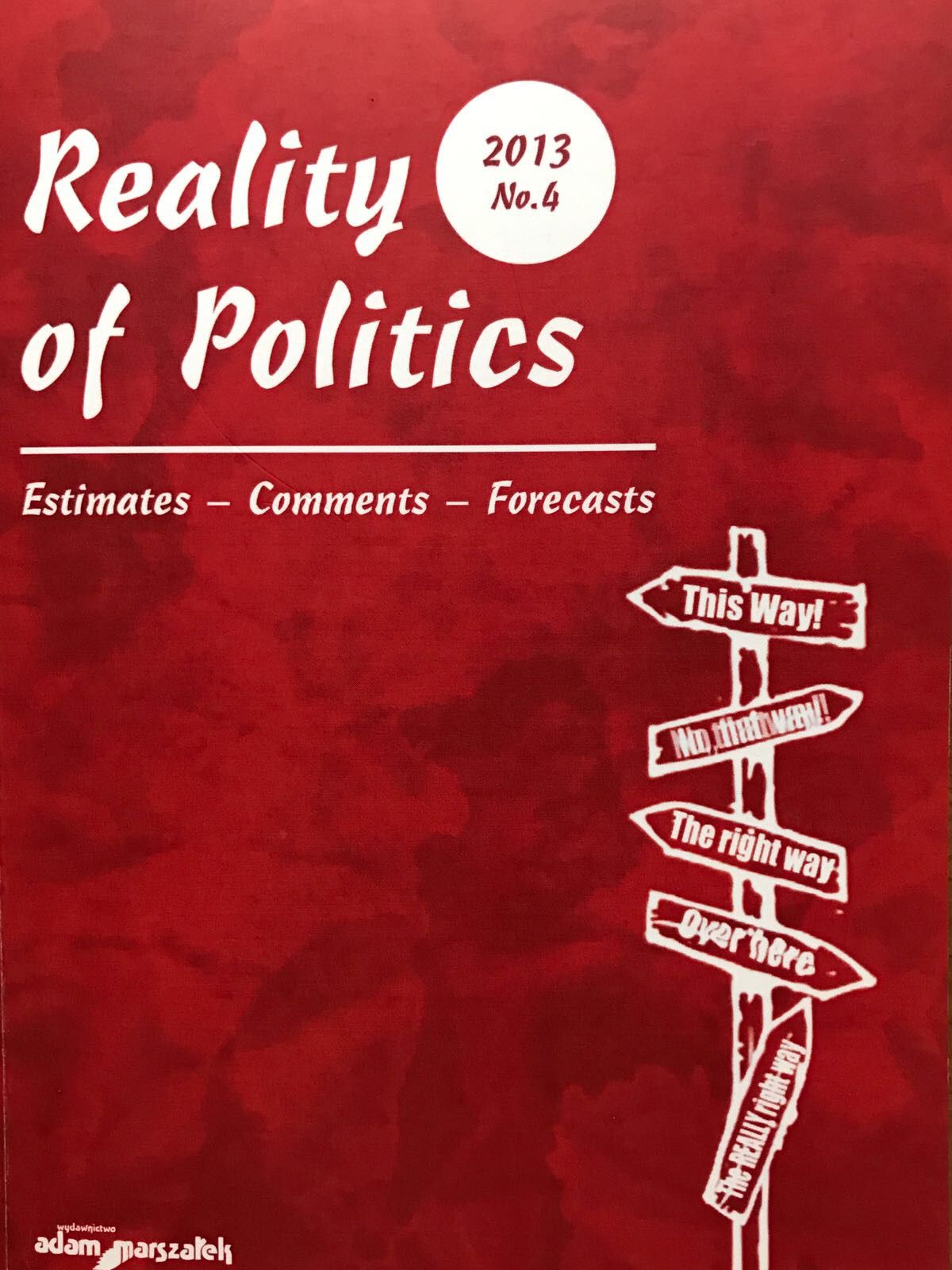
This article analyses the position of European Parliament in the question of the lasting from 2010 association process of the South Caucasus countries with the UE.
More...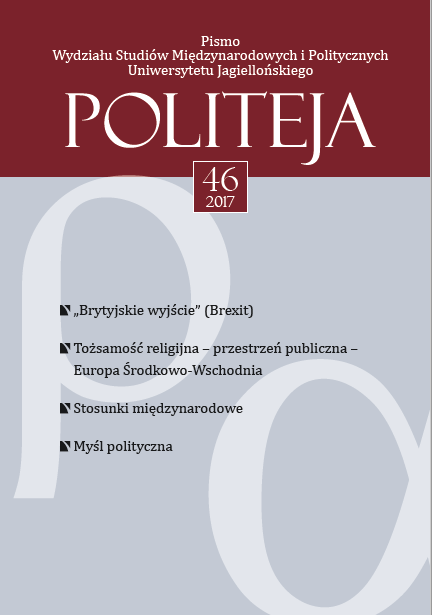
Membership in European Union has become one of the most crucial and controversial issues in British politics in recent years. Eurosceptics from United Kingdom Independent Party were exhorting to leave the EU and more and more British people had supported them. David Cameron who was leading the government since 2010 had to express a conservative view on the matter. He had announced his plan to renegotiate the terms of EU membership and hold a referendum on the results, asking British people to vote for what he thought the only right choice – staying in European Union. But not all Tories shared that belief. This article examines the issue of Euroscepticism in Conservative Party analyzing its doctrinal as well as political origins and its influence on the government.
More...
The objective of this paper is an analysis of the course of the 2016 EU referendum campaign from the perspective of the political battle between the parties and between intra‑party factions. Besides the main goals of the UK’s leaving the EU or remaining within it, the stakes of the battle included the strengthening of one’s own political camp, the weakening of one’s opponents, the gaining of power within a party or, eventually, the gaining of power in the country. The article is divided into two major parts devoted to the analysis of inter‑party rivalry and intra‑party rivalry respectively. The referendum (both its campaign and results) has demolished the existing political make‑up determined by the results of the latest parliamentary elections (2015). The analysis is based on the following two theoretical categories: an opportunity structure and a political strategy. In accordance with these categories, an assumption has been adopted that the referendum opened a new opportunity structure on the British political scene, encouraging the parties, their factions and individual politicians to use the elections as a means of pursuing their own political agendas and goals not necessarily related directly to the EU referendum.
More...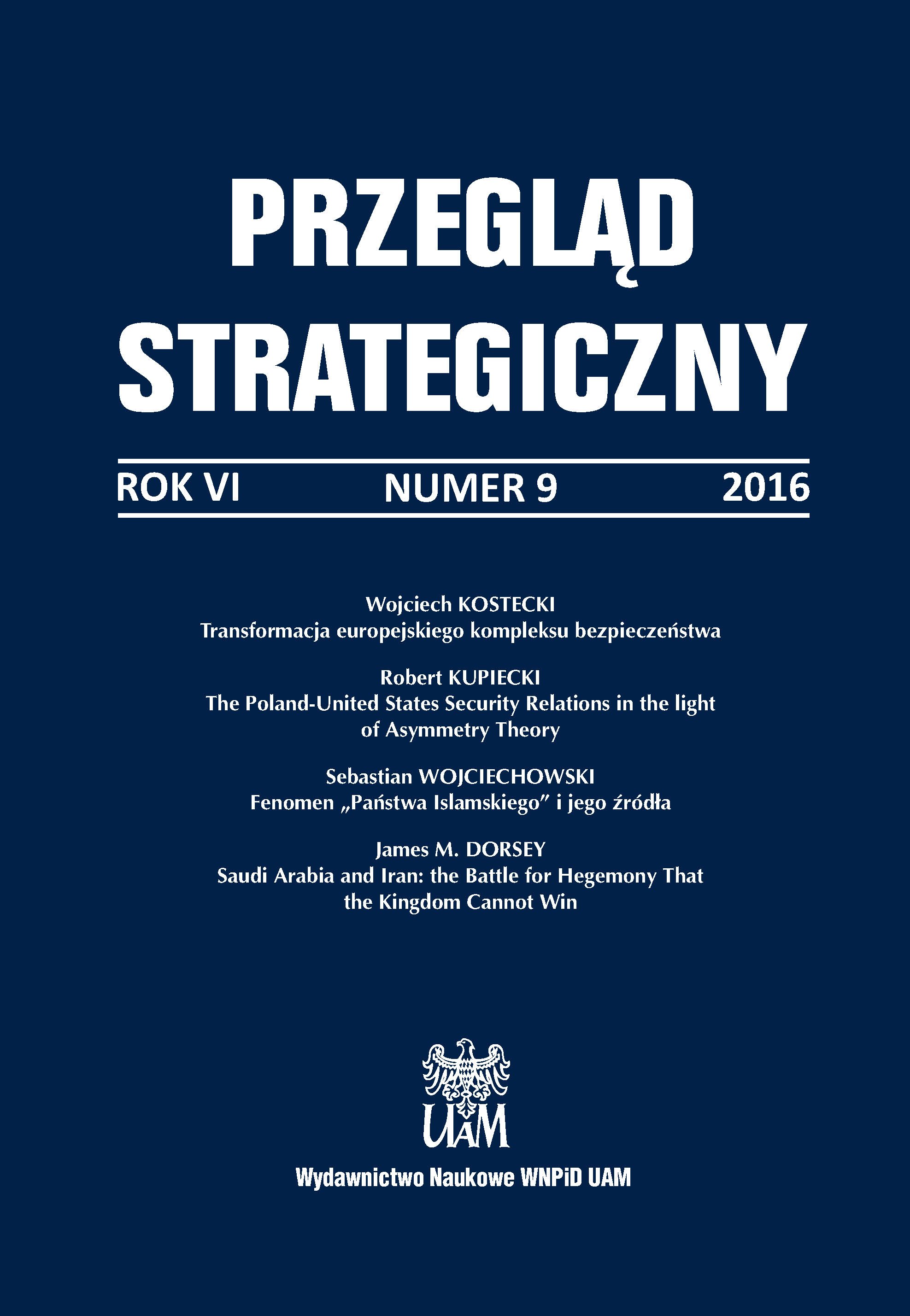
The article refers to Polish membership in the European Union and the liberal perspective of its analysis. The paper discusses the shortages of the liberal approach. The article accepts the liberal thesis regarding the opportunities that the accession to the EU opens up for Polish development. It notes the significance of the European mechanisms of regional cooperation. Nevertheless, the paper emphasizes that the liberal perspective ignores the inequalities of power in the European Union and misses some serious tendencies, both at the level of the community and in the domestic politics, that impede the state’s development. Thus, the article refers to the limited competitiveness of the Polish economy and the state’s difficulties with the identification of its interests in the dynamic and variable international environment. It warns against the marginalization of Poland as “semi-peripheral” member of the European Union. The main conclusion of the paper is that the case of Polish membership in the EU is too complicated to close it in the liberal frameworks. The liberal perspective needs a realist correction. It is extremely important in the context of the challenges that Poland faces together with the crisis of the European integration.
More...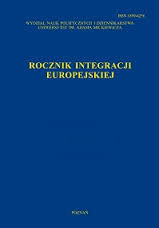
The aim of the article is to present the position of Angela Merkel to Turkey’s membership in the European Union in years 2005–2015. It has been divided into 6 parts, which introduces the history of relations between the EU and Turkey, and Chancellor’s most pronounced concerns in connection with the efforts of Turkish accession. The author realizes that she did not present the whole range of issues related to the Turkey’s efforts, but outlined the important issues that influenced the most Angela Merkel’s attitude in the past 10 years.
More...